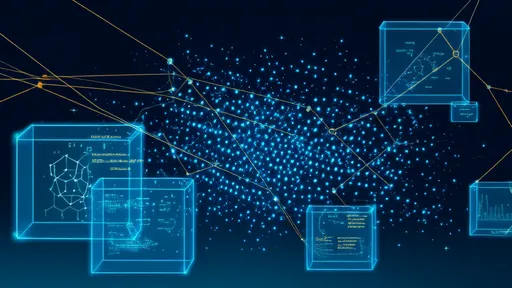The age-old debate between mathematical Platonism and formalism continues to divide philosophers, mathematicians, and scientists alike. At its core, this intellectual clash revolves around the fundamental nature of mathematical entities: do they exist independently of human thought, or are they merely formal constructs of our invention? This question strikes at the very heart of what mathematics is, and its implications ripple across disciplines from theoretical physics to computer science.
Platonism, named after the ancient Greek philosopher Plato, posits that mathematical objects exist in an abstract realm beyond space and time. According to this view, numbers, geometric shapes, and other mathematical entities have an objective existence just as real as tables and chairs—perhaps even more so. The mathematician discovers rather than invents mathematical truths, uncovering eternal verities that exist independently of human minds. This perspective finds support in the uncanny effectiveness of mathematics in describing the physical world, as famously noted by physicist Eugene Wigner in his essay "The Unreasonable Effectiveness of Mathematics in the Natural Sciences."
Proponents of Platonism often point to the experience of mathematical discovery as evidence for their position. Many mathematicians report feeling that they are exploring a landscape that exists prior to their investigation, rather than creating something new. The consistency and interconnectedness of mathematical truths across cultures and historical periods further suggest that these truths transcend individual human minds. From this viewpoint, the proof of the Pythagorean theorem wasn't invented by Pythagoras, but rather discovered by him—the relationship between the sides of a right triangle being true before any human contemplated it.
In stark contrast, formalism maintains that mathematics is ultimately about formal symbol manipulation according to specified rules. On this account, mathematical statements don't refer to anything beyond the symbols themselves and the rules for their manipulation. The famous formalist David Hilbert envisioned mathematics as a game played with marks on paper, where the meaning of the symbols is irrelevant to their mathematical manipulation. This perspective gained traction in the early 20th century as mathematicians sought to place their discipline on firm logical foundations following various paradoxes and crises in set theory.
Formalists argue that Platonism commits one to a mysterious realm of abstract entities whose relationship to the physical world remains unexplained. Why should abstract mathematical objects, existing outside space and time, have any bearing on the behavior of physical objects? The formalist account avoids this problem by treating mathematics as a human-constructed language game. Mathematical truth becomes a matter of derivation from axioms according to rules, not correspondence with some abstract reality. This view finds practical expression in computer proof assistants and automated theorem provers, which manipulate symbols without any reference to meaning.
The debate takes on particular significance in contemporary physics, where highly abstract mathematical structures often precede experimental confirmation. The predictive success of mathematics in quantum mechanics and general relativity seems to support the Platonist view that mathematical structures have an independent reality that physicists discover. Yet the formalist can counter that these are cases where human-invented formal systems happen to model physical phenomena effectively—a happy coincidence rather than evidence for mathematical objects existing independently.
Recent developments in mathematical practice have added new dimensions to this ancient debate. The increasing use of computer-assisted proofs, where human intuition plays little role in lengthy formal derivations, lends credence to the formalist perspective. Conversely, the discovery of deep connections between seemingly unrelated mathematical fields—what mathematicians call "unreasonable effectiveness" within mathematics itself—continues to inspire Platonist interpretations. The debate shows no signs of resolution, perhaps because it touches on fundamental questions about the nature of reality and human knowledge that transcend mathematics proper.
Ultimately, the Platonism-formalism debate may reflect complementary aspects of mathematical practice rather than requiring an exclusive choice. Many working mathematicians adopt a pragmatic attitude, behaving as Platonists when exploring new concepts but becoming formalists when rigor is required. This dual perspective acknowledges both the creative and discovery aspects of mathematical work. As mathematics continues to evolve and find new applications, this philosophical tension will likely persist, challenging our understanding of knowledge, reality, and the limits of human reason.

By /Aug 14, 2025

By /Aug 14, 2025

By /Aug 14, 2025

By /Aug 14, 2025

By /Aug 14, 2025

By /Aug 14, 2025

By /Aug 14, 2025

By /Aug 14, 2025

By /Aug 14, 2025

By /Aug 14, 2025

By /Aug 14, 2025

By /Aug 14, 2025

By /Aug 14, 2025

By /Aug 14, 2025

By /Aug 14, 2025

By /Aug 14, 2025

By /Aug 14, 2025

By /Aug 14, 2025

By /Aug 14, 2025

By /Aug 14, 2025